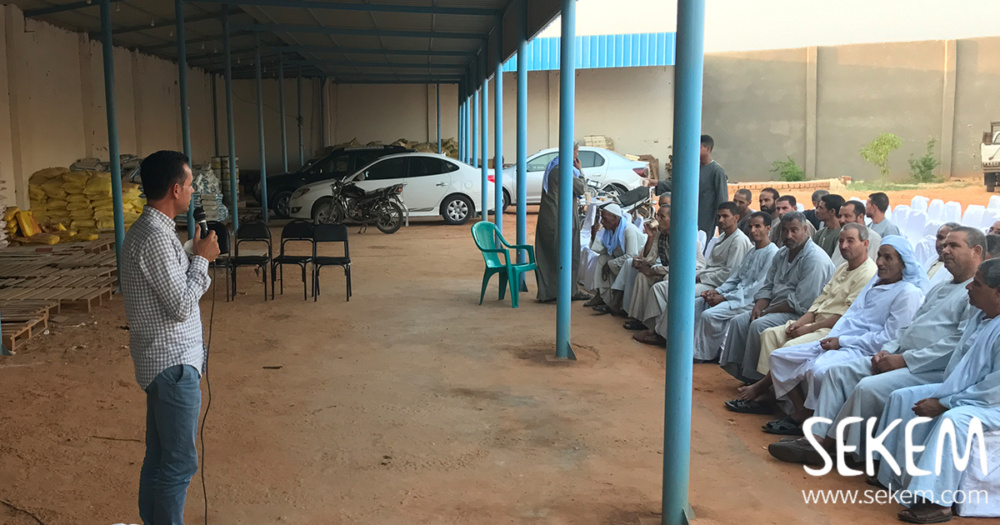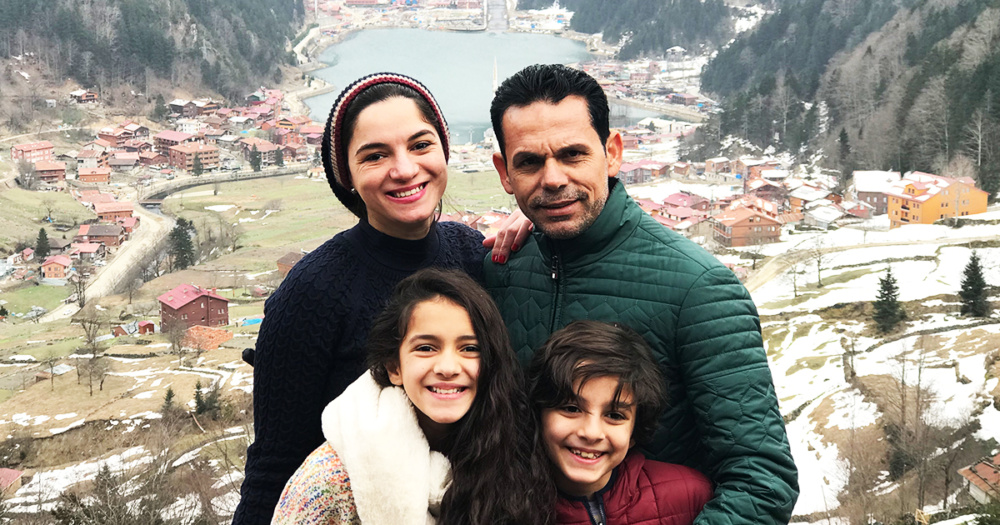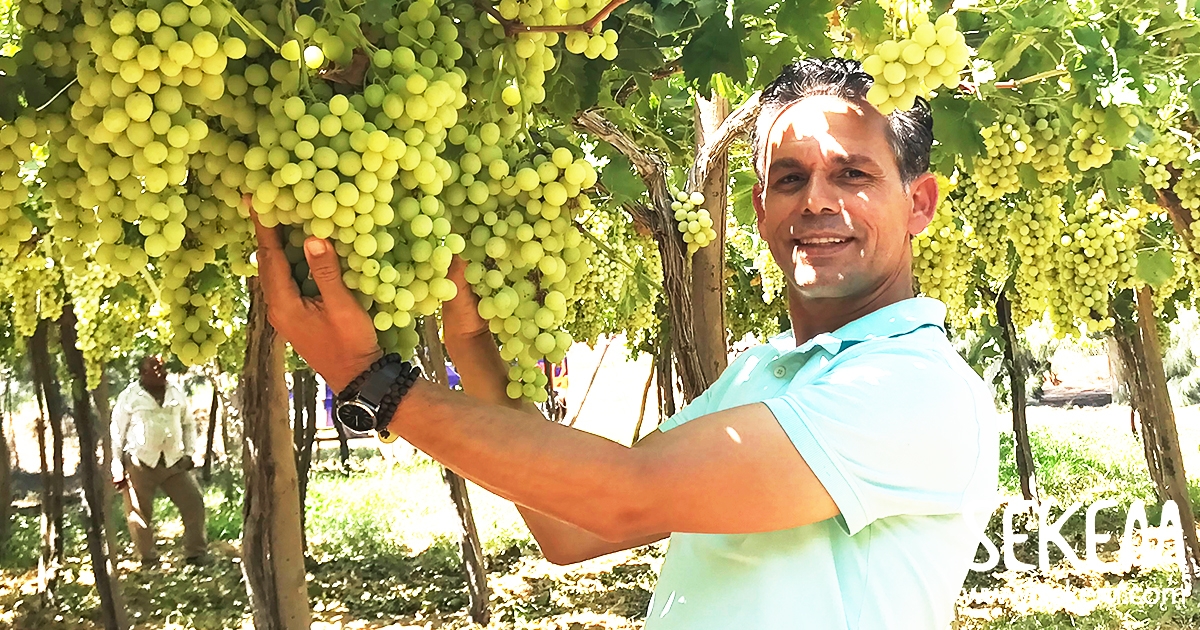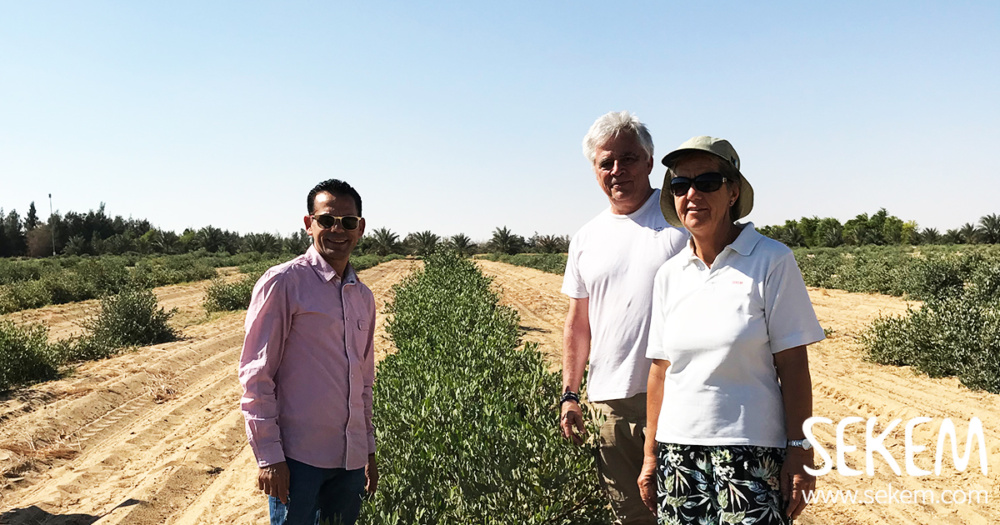“We should always be open to admitting mistakes and confessing that we are smarter today than we were yesterday,” says Amr while driving his jeep across the fields of the SEKEM desert farm in Wahat (about 500 kilometres south-west of Cairo). This attitude seems particularly important for successful farming in the desert. “We are experimenting a lot here to make our work more and more sustainable, for example in terms of irrigation or energy”. With such insights, it soon becomes clear during a conversation that the polite SEKEM employee holds a position of responsibility. For five years now, Amr Sabahy has been the head of agricultural activities of all SEKEM farms.

In the Egyptian city of Banha, located in the Nile Delta, Amr Sabahy studied agronomy conventional, of course, because the topic of organic farming has only been introduced at Egyptian universities a few years ago. The first contact with organic agriculture came through a professor who worked in SEKEM and asked him whether he would be interested in doing research on compost production 15 years ago. “I didn’t really like that, it was far too theoretical for me,” reports Amr. “I wanted to work more hands-on after my studies. Amr Sabahy thinks it is important that agriculture is really practiced on the ground. “I had so many lecturers who were brilliant in theory, but couldn’t make the connection to practice – that is difficult,” the SEKEM executive recalls. Later on, Amr acquired a PHD in Biosystems engineering reinforcing his practices with studies
From knowledge to conviction
Amr Sabahy himself has had an intensive connection to agriculture since his earliest childhood. Together with his father, a farmer specialized in vegetable growing, he travelled throughout Egypt and worked in different fields with different farmers. “During this time, I learned a lot which helps me today – maybe even more than during my studies”, the 47 years old man remembers. “Traditional agriculture is naturally organic from its origins and the old farmers have a lot of valuable knowledge about it. In Egypt, particularly the construction of the Aswan Dam destroyed this original form and led to the dramatic practices with pesticides and artificial fertilizers of today,” he continues.
“Here on our farm in Wahat, far in the Egyptian desert, we want to make use of the potential that the clear air and untouched soil holds”, tells Amr. For some time now, the ambitious agricultural expert has been on site several days per week to support the greening of many more hectares of desert land. “We are certainly not doing everything perfectly in this context, but we are trying to improve from day to day,” he explains, pointing to the hoses that are heaped up next to some fields. The plastic of the irrigation hoses is not very durable in the harsh desert climate and has to be removed after a certain period of time so that it does not leave any residues in the soil. “This is a complex procedure, but necessary to ensure that the environment remains unpolluted” says the SEKEM head of agriculture.
Greening the land… greening the mind
The charismatic Amr Sabahy seems to be as popular with his employees as he is with SEKEM visitors. He meets the employees at eye level and impresses them with his professional competence. He regularly gives visitors insights into SEKEM’s agricultural work with continuous enthusiasm – both to generally interested people as well as to professionals. “Like this, I have for example been able to improve my foreign language skills”, the family man reports proudly. Amr is father to two children, 13 year old Farah and 11 year old Mohamed, who are regular visitors to SEKEM farms to experience what their father loves most. “It is important to me to show my children where I spend so much time and to explain to them the reason for my passion”, he tells. “I dream that they will one day see the 2,300 fedans of desert land in Wahat turning green, relying entirely on clean energy,” wishes Amr.

Amr Sabahy bears a lot of responsibility and achieves a lot – with ease, it seems. He rarely seems stressed, takes time for people and usually has a smile. His modesty as well as his passion to work and willingness to admit mistakes could be the reason.
Christine Arlt
Close Connection Despite Spatial Distance: North African Organic Knowledge Hubs
Tailor Made Trainings on Salinity farming


